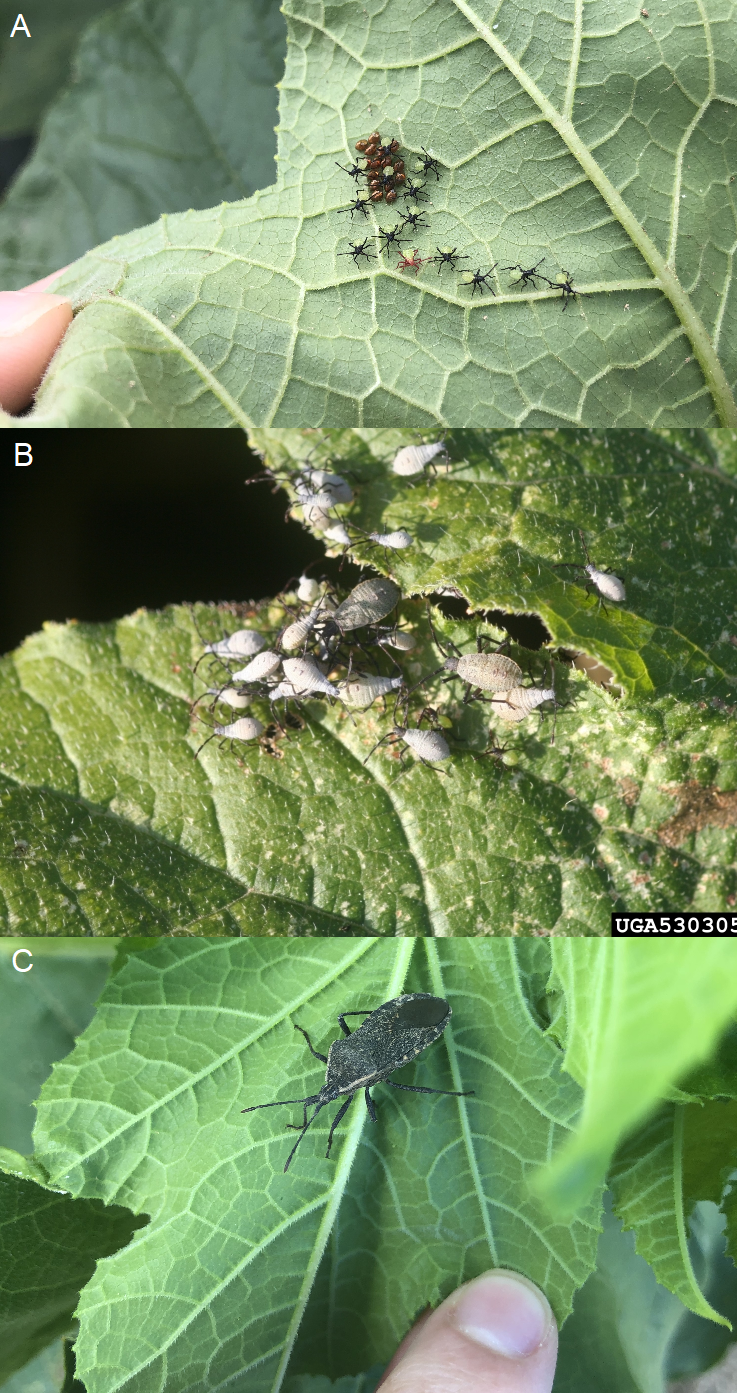Southeast Michigan vegetable update – July 15, 2020
Farms around the area received variable rainfall late last week.

Weather
Farms around the area received variable rainfall late last week, generally between 0.5-1.25 inches. Dryness will continue to be a concern, both locally and across the region. There may or may not be rain in the next 24 hours. The rest of the week will feature sunny, dry and hot conditions. There will be high humidity and dewpoints in the 70s. Medium and long-range forecast guidance is suggesting a warmer than normal rest of the month.
Despite it being hot with dry soil, high dewpoints will still provide windows for foliar disease development. The weather has also prompted weed germination and growth, especially now that we are past the control window offered by preemergent herbicides.
The table below shows rainfall totals for the Michigan State University Enviroweather stations in southeast Michigan, as well as degree-days calculated using the Baskerville-Emin Method. Degree-day average for Commerce and Hudson is over five years, while Deerfield is over four years. Rainfall is in inches. For a refresher on degree-days and how to get this information in your area, see “Accessing growing degree days with Enviro-weather” from MSU Extension.
|
Rainfall and degree day totals as of July 15, 2020 |
||||
|---|---|---|---|---|
|
Station |
Degree days (base 42) |
Degree days (base 50) |
5-year degree day average (base 50) |
Rainfall since April 1 |
|
Commerce |
1931 |
1253 |
1225 |
9.46 (+0.39) |
|
Deerfield |
2100 |
1380 |
1431.4 |
9.14 (+0.65) |
|
Hudson |
1937 |
1253 |
1308.8 |
10.72 (+0.96) |
General notes
MSU’s new edible specialty crop weed extension specialist, Sushila Chaudhari, is working on a survey of herbicide resistant weeds in vegetable crops. For information on submitting potentially resistant weeds for screening and the project in general, see “Screening of herbicide resistant weeds in Michigan vegetable fields.”
Crop reports
Cole crops are being harvested. Black rot is being reported in cauliflower and Brussel sprouts in the region. As crops are harvested, timely crop residue destruction is important. Trapping in Michigan has indicated swede midge populations spike in mid- to late-July. Unmanaged crop remains are good places for this pest to lay eggs and grow its numbers. Residue destruction now will keep populations lower and is especially important on small farms where it isn’t possible to rotate cole crops across long distances.
Cucumber and melon growers should continue their downy mildew programs. Downy mildew was found in Washtenaw County hoop house cucumbers this week.
Vine crop growers should scout for insects and diseases. Squash bug eggs are being laid and hatching in our area. Squash bug causes most of its damage a little later in the season, but they are much easier to manage when they are in the nymphs stage. For management options, see the Midwest Vegetable Production Guide.

While I haven’t caught any squash vine borers in my traps in Lenawee and Washtenaw counties, I have seen them flying in fields in our area.
Sweet corn harvest is arriving on farms across the area. Corn earworm pressure continues to be low (my Monroe County trap is average about three moths a night, my Lenawee county trap caught no moths). I haven’t caught any western bean cutworm adults or seen eggs in pre-tassel sweet corn. There is some European corn borer feeding on tassels and boring into stalks.
Early blight is making its presence known in tomatoes.
Reach out
Please contact me at schuhmar@msu.edu or 517-264-5309 with questions, concerns or to schedule a field visit. I have the ability to visit fields on a limited basis.
Great Lakes Vegetable Producer’s Network
The Great Lakes Vegetable Producer's Network is a live weekly roundtable discussion during the growing-season for commercial vegetable producers in the Great Lakes and Midwest region. It is broadcast live via Zoom at 12:30 ET/11:30 CT every Wednesday from the first week of May to the first week of September. Listen live or later. If you have a pressing vegetable production issue that you would like discussed, simply email it, along with your phone number, to greatlakesvegwg@gmail.com.
Next week will focus on mid- and late-season cover crops.
“Preparing your farm for tax season now” online program
Held July 17 from 12-1 p.m. via Zoom, the goal of this program is to help farmers who do not have a good recordkeeping system in place but are not ready to buy an accounting software, or hate computers, or love spreadsheets. Want to take the next step beyond keeping records in a shoebox and get your records straight using something like the farm records book in preparation for the next tax season? Then register for this program at: Prepare Your Farm For Tax Season Now - Online Workshop.



 Print
Print Email
Email




